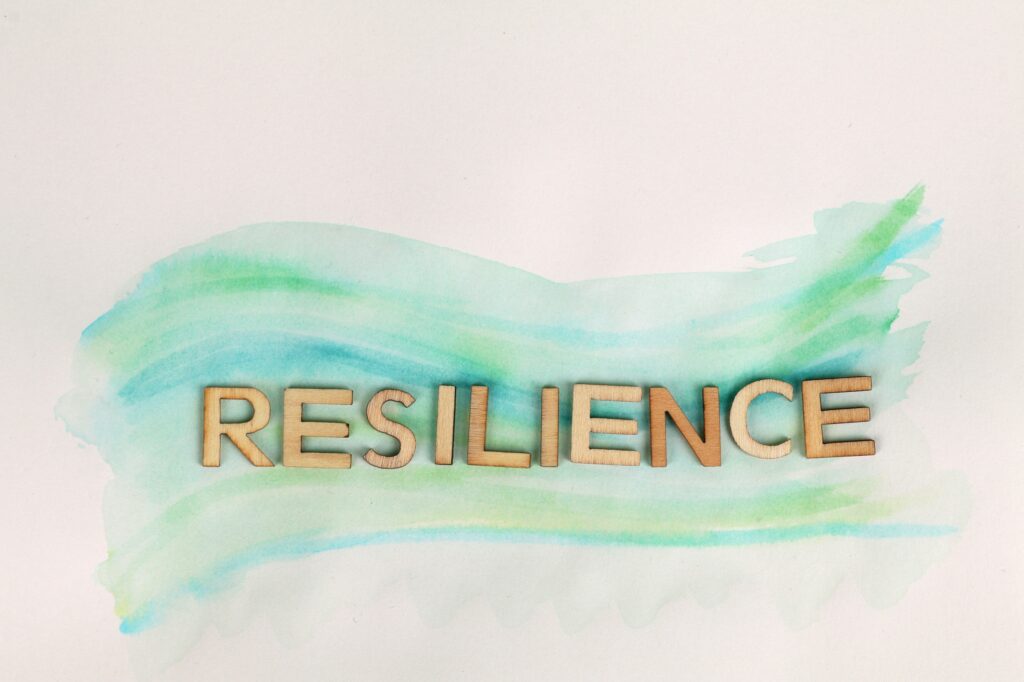Resilience is the art of bouncing back from life’s challenges with strength and grace. In this article, we explore the importance of resilience, strategies for building it, and how a resilient mindset can empower you to thrive in the face of adversity.
Embracing Change as an Opportunity
Resilient individuals see change as an opportunity for growth rather than a setback. Change can be scary, but it can also be awesome. Think about it: if everything stayed the same forever, life would be pretty boring, right? You wouldn’t get to learn new things, meet new people, or have new experiences. Change is what makes life interesting and exciting. It’s also what helps you grow and improve as a person.
So instead of resisting change, why not embrace it as an opportunity? When you face a change, whether it’s big or small, try to see the positive side of it. Maybe it’s a chance to challenge yourself, to discover something new, or to make a difference. Maybe it’s a chance to let go of something that’s holding you back, to start fresh, or to follow your dreams. Whatever it is, don’t be afraid of it. Be curious, be optimistic, and be ready to seize the opportunity. You never know what amazing things might happen when you embrace change as a natural part of life’s journey, and adapt with flexibility and optimism.
Cultivating a Supportive Network
Building resilience is easier with the support of family, friends, and mentors. They can cheer you up when you’re feeling down, offer advice when you’re facing a challenge, and celebrate your achievements with you. But how do you cultivate a supportive network? Here are some tips:
– Be supportive yourself. Show interest in other people’s lives, listen to their problems, and offer help when you can. You’ll attract more support if you give it first.
– Be selective. Not everyone will be supportive of you, and that’s okay. You don’t need to be friends with everyone. Focus on the people who share your values, goals, and passions, and who respect your boundaries.
– Be proactive. Don’t wait for others to reach out to you. Initiate contact, invite them to hang out, and follow up regularly. You’ll strengthen your relationships and show that you care.
– Be grateful. Appreciate the support you receive and express your gratitude. A simple thank you, a compliment, or a small gift can go a long way. You’ll make your supporters feel valued and motivated to keep supporting you.

Practicing Mindfulness for Resilience
Mindfulness cultivates a centered mindset, enabling you to navigate challenges with clarity and composure. It is a way of paying attention to the present moment, without judging it or wishing it were different. Mindfulness can help you cope with stress, anxiety, and other challenges in life. It can also boost your resilience, which is your ability to bounce back from difficulties and adapt to changing situations. Here are some tips on how to practice mindfulness for resilience:
– Start with a simple breathing exercise. Sit comfortably and focus on your breath as it flows in and out of your body. Notice the sensations in your nostrils, chest, and belly. If your mind wanders, gently bring it back to your breath. Do this for a few minutes every day.
– Be aware of your thoughts and feelings. When you face a challenge or a setback, don’t try to avoid or suppress your emotions. Instead, acknowledge them and let them be. Don’t judge yourself or your situation as good or bad, right or wrong. Just observe what is happening in your mind and body.
– Choose a positive attitude. Mindfulness can help you see things from different perspectives and find opportunities for growth and learning. Instead of dwelling on the negative aspects of a problem, focus on the positive ones. For example, if you fail an exam, you can think of it as a chance to improve your study skills or learn from your mistakes.
– Practice gratitude. Being grateful for what you have can make you more resilient and happier. You can practice gratitude by writing down three things you are thankful for every day, or by expressing your appreciation to someone who helped you or made you smile. – Be kind to yourself and others. Mindfulness can help you cultivate compassion and empathy for yourself and others. You can practice self-compassion by treating yourself as you would treat a friend who is going through a hard time. You can also practice kindness by doing something nice for someone else, such as giving a compliment, offering help, or listening attentively.
Learning from Setbacks
Resilience is strengthened through learning from setbacks. Learning from setbacks is not always easy, but it’s definitely worth it. Setbacks can teach us valuable lessons, help us grow as people, and motivate us to try harder. Sometimes, we might feel discouraged or frustrated when things don’t go our way, but that’s normal. The important thing is to not give up and to learn from our mistakes. We can use setbacks as opportunities to reflect, improve, and move forward. By doing so, we can turn challenges into achievements and become more resilient and confident. Reflect on challenges, identify lessons, and apply newfound knowledge to future situations.

Developing Coping Mechanisms
Coping mechanisms are ways of dealing with stress, anxiety, or other negative emotions. They can help you feel better, calm down, or distract yourself from what’s bothering you. Some examples of coping mechanisms are:
- Talking to a friend, family member, or therapist
- Doing something you enjoy, like reading, listening to music, or playing a game
- Practicing relaxation techniques, like breathing exercises, meditation, or yoga
- Writing down your feelings in a journal or a diary
- Challenging your negative thoughts with positive affirmations or realistic expectations
- Seeking professional help if you feel overwhelmed or depressed
Coping mechanisms are not one-size-fits-all. What works for one person may not work for another. The important thing is to find what works for you and use it regularly. Coping mechanisms can help you improve your mental health and well-being.
Fostering a Positive Inner Dialogue
Hey, you know what? You’re awesome. Seriously, you have so many amazing qualities and talents that make you unique and valuable. And you deserve to be happy and confident in yourself. Resilient individuals cultivate a positive inner dialogue that reinforces their strength and abilities. Here are some tips to help you do that:
– Be mindful of your thoughts. Notice when you’re being harsh or critical of yourself, and try to replace those negative messages with more compassionate ones.
– Use affirmations. Repeat positive statements to yourself every day, such as “I am capable”, “I am worthy”, “I am enough”. You can also write them down and stick them somewhere you can see them often.
– Challenge your limiting beliefs. Sometimes we hold on to beliefs that are not true or helpful, such as “I can’t do anything right”, “I’m not good enough”, “I don’t deserve love”. Ask yourself where these beliefs come from, and how you can change them to more empowering ones.
– Celebrate your achievements. Don’t downplay or dismiss your accomplishments, no matter how big or small. Recognize and appreciate your efforts and successes, and reward yourself for them.
– Seek support. You don’t have to do this alone. Reach out to your friends, family, or a professional if you need help or guidance. They can offer you encouragement, feedback, and perspective.
Remember, fostering a positive inner dialogue is not about being unrealistic or delusional. It’s about being kind and respectful to yourself, and acknowledging your strengths and potential. You have the power to change your thoughts, and your thoughts can change your life.

Building resilience is a transformative journey that empowers you to navigate life’s challenges with grace and strength. Embrace change, nurture support networks, practice mindfulness, and learn from setbacks to cultivate resilience that propels you towards growth and success.



